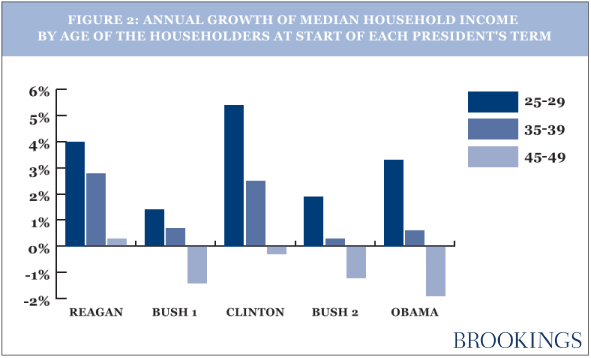Republicans are making some heady claims about their hastily constructed,
historically unpopular tax legislation. “If we do this, then America will win again like never, ever before,” President Trump said in a speech touting the legislation
this week. “A vote to cut taxes is a vote to put America first again. We want to do that. We want to put America first again. It’s time to take care of our workers, to protect our communities, and to rebuild our great country.”
But a bipartisan group of leading economists have expressed some deep skepticism about many of the central claims the White House and congressional Republicans are making about the potential effects of the legislation. Below are the top seven myths they have put forward—and the evidence that disproves them.
1. The tax bill will pay for itself.
The Tax Cuts and Jobs Act remains a moving target, with congressional Republicans horse-trading different provisions into and out of the bill and work not yet done to reconcile differences between the House and the Senate versions. Still, the basic parameters are clear. On the household side, the bill would lower the rates charged in each tax bracket, expand the child tax credit, eliminate personal exemptions, and expand the standard deduction. On the business side, it would lower the corporate income tax rate dramatically, and create a big deduction or a special rate for “pass-through” businesses that pay individual income tax rates. It would also let businesses bring back foreign profits at a very low rate, and likely move the country to a territorial tax system, wherein companies pay taxes on profits generated in the United States, not worldwide.
All those rate reductions would mean that the Treasury would be taking in far less money from individuals and businesses. But Republican officials have insisted that the tax cuts would improve growth so much that they would pay for themselves, offsetting the revenue losses. “Not only will this tax plan pay for itself, but it will pay down debt,” Treasury Secretary Steven Mnuchin
promisedrecently.
Not so, one of the country’s most respected, nonpolitical economic scorekeepers
has said. The Joint Committee on Taxation (JCT) this week found that the Senate proposal would increase output by 0.8 percent over ten years. Because that extra output would get taxed like anything else, it would indeed mean additional money going to government coffers—but not nearly enough to cover the losses from the tax cuts. The JCT estimated that the bill would add $1.4 trillion dollars to federal deficits over a decade, ignoring any dynamic effects on the economy. Taking into account improved growth, it would add $1 trillion to federal deficits—more than President Obama’s stimulus bill, passed to save the economy during the Great Recession. A University of Chicago poll of some of the country’s top economists came to the
same conclusion. Not a single one of the experts surveyed said that the kind of legislation under consideration would lead to a falling debt-to-GDP ratio.
2. It will supercharge growth.
Still, Republicans have insisted that the legislation would supercharge American growth. “These massive tax cuts will be rocket fuel—Little Rocket Man—rocket fuel for the American economy,” Trump said
this week, referencing Kim Jong Un of North Korea. “Remember I used to say, we can hit 4 [percent growth] and we can hit 3? And they were all saying, forget it, forget it. It was 1.2. It was doing terribly. We were flat. We were even. In all fairness, the stock market was going this way. And now, we’re hitting numbers that nobody thought possible.”
There are 5 more but I don't want to bore any of you
But the JCT shows that the tax bill would add less than 0.1 percentage points to the country’s annual rate of growth, totaling just 0.8 percentage points of additional growth over ten years. The experts quoted in that Chicago poll said much the same. “Tax policy appears to have little effect at the margin on GDP growth in OECD countries,” argued David Autor, a Harvard economist.
Why doesn’t the bill do more for the economy’s growth rate? In part because the government is passing tax cuts when the economy is already doing well—raising the prospect that the Federal Reserve would move to counteract the stimulative effect of all that deficit spending and would raise interest rates to cool the economy off. And in part because giving tax cuts to rich families and corporations is simply
not that stimulative of a thing to do, since they do not tend to put the money toward buying new goods and services.
3. Cutting the corporate tax rate will lead businesses to give raises to regular workers.


